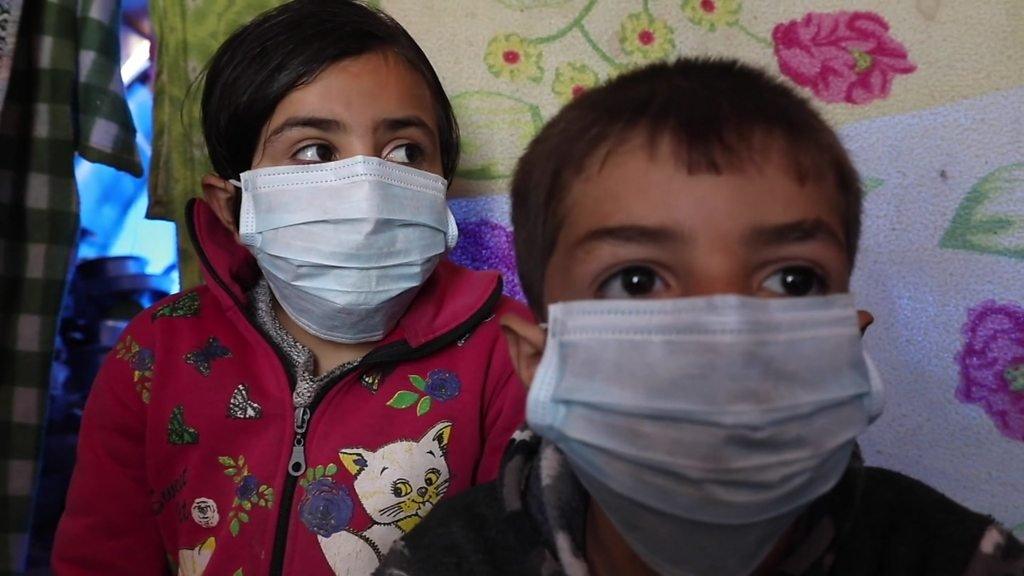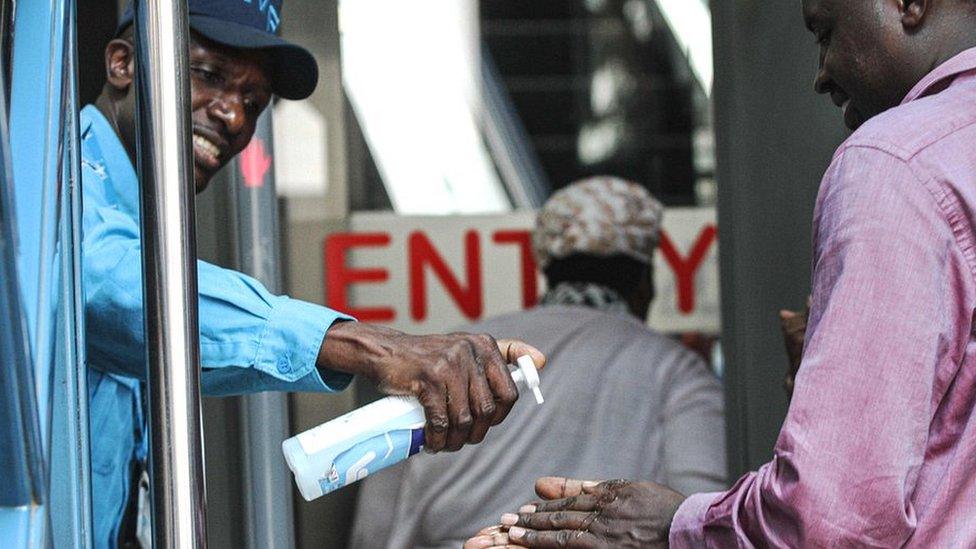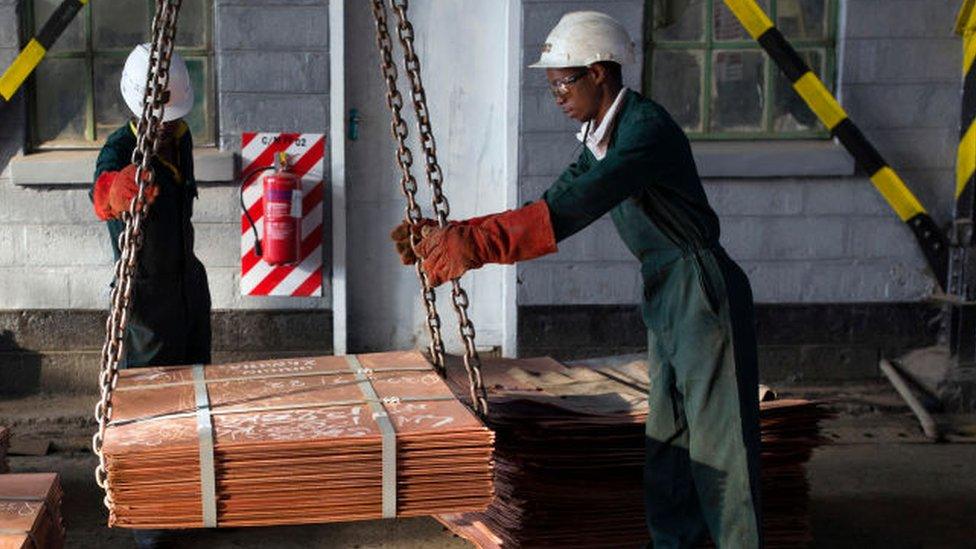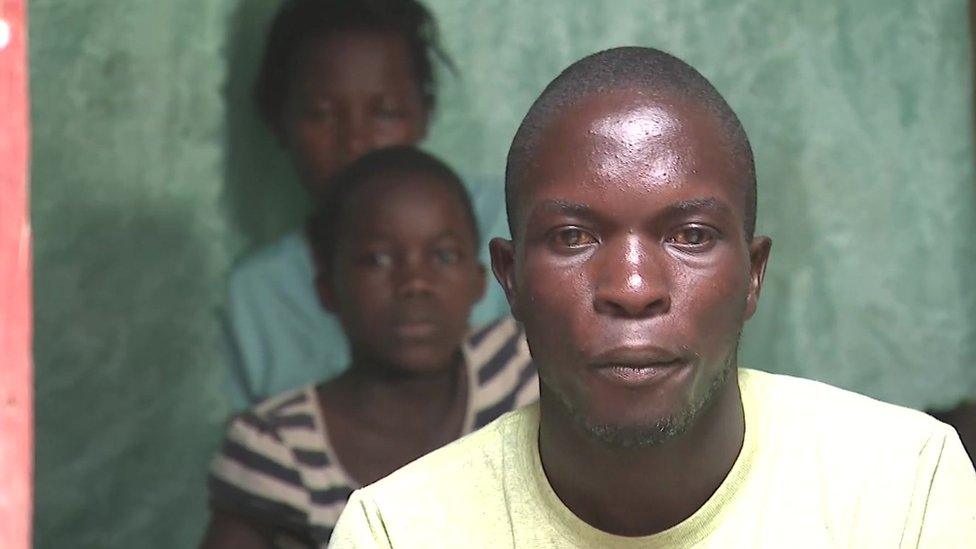Coronavirus: 'One billion' could become infected worldwide - report
- Published
The BBC's Secunder Kermani and Anne Soy compare how prepared Asian and African countries are
One billion people could become infected with the coronavirus worldwide unless vulnerable countries are given urgent help, an aid group has warned.
The International Rescue Committee (IRC) said financial and humanitarian aid were needed to help slow the global spread of the virus.
It said "fragile countries" such as Afghanistan and Syria needed "urgent funding" to avoid a major outbreak.
"There remains a small window of time to mount a robust response," it warned.
There have been more than three million confirmed cases of Covid-19 worldwide with more than 200,000 deaths, according to Johns Hopkins University in the US.
The IRC's report, which is based on models and data from the World Health Organization (WHO) and Imperial College London, estimated there could be between 500 million and one billion infections globally.
It also said there could be more than three million deaths across dozens of conflict-affected and unstable countries.
"These numbers should serve as a wake-up call," said the head of the IRC, David Miliband.
"The full, devastating and disproportionate weight of this pandemic has yet to be felt in the world's most fragile and war-torn countries," he added. "The key now is for donors to urgently put flexible funding behind frontline efforts.
"Governments must work together to remove any impediment to humanitarian assistance."

The US-based group, which responds to humanitarian crises around the world, said factors such as household size, population density, healthcare capacity and pre-existing conflicts could all increase the risk of major outbreaks developing.
Many countries in the developing world have low official infection rates or death tolls - but the actual numbers are believed to be much higher.
Caroline Seguin, who manages programmes in Yemen for the medical charity Doctors Without Borders (MSF), said the organisation believed people there were already dying from Covid 19 - just not in hospitals.
"We are convinced that there is local transmission ongoing but the capacity of testing is very, very low," she told the BBC.
Fears of virus in Idlib refugee camps
Ms Seguin said Yemen, which was referenced in the IRC report as being particularly vulnerable to coronavirus, said the country had been weakened by recent outbreaks of cholera and measles.
"The health system is collapsing... and for sure the ministry of health is not able to cope with this disease," she said.
A major issue facing developing or unstable countries is a lack of suitable medical equipment for treating patients with Covid-19.
In Afghanistan and Pakistan, there are fewer than ten ventilators for every one million people. In Nigeria, that figure is even more stark at 0.8 ventilators per million.
For context, Italy, which has one of the highest death tolls from the virus in the world, had 80 ventilators per one million people at the start of the crisis.
What's the latest around the world?
New Zealand has begun easing some of its lockdown measures. With new cases in single figures for several days, the government says the virus is "currently" eliminated
Japan's coronavirus hotspot Tokyo had only 39 new cases on Monday, the fewest in weeks
US President Donald Trump says he "can't imagine why" states have seen a spike in people using disinfectant, after he suggested injecting the substance to treat coronavirus
US states including Georgia, Oklahoma, Alaska and South Carolina are re-opening their economies, despite infections continuing to rise
UK figures suggest deaths in care homes from the virus are continuing to rise
France and Spain are set to unveil plans to relax lockdowns that have been in place for several weeks
Nigeria will begin a "gradual easing" of coronavirus-related lockdowns for millions of people in its largest cities
India has cancelled orders for about half a million coronavirus rapid testing kits from China after they were found to be "faulty"

A SIMPLE GUIDE: How do I protect myself?
AVOIDING CONTACT: The rules on self-isolation and exercise
HOPE AND LOSS: Your coronavirus stories
LOOK-UP TOOL: Check cases in your area
VIDEO: The 20-second hand wash

- Published27 March 2020

- Published14 March 2020

- Published23 April 2020

- Published24 January 2021

- Published16 March 2022

- Published28 April 2020

 mapped
mapped